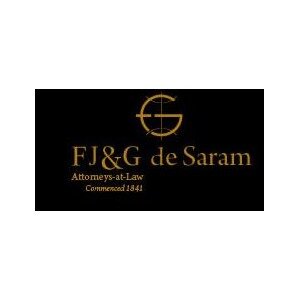Best Trusts Lawyers in Sri Lanka
Share your needs with us, get contacted by law firms.
Free. Takes 2 min.
Or refine your search by selecting a city:
List of the best lawyers in Sri Lanka
About Trusts Law in Sri Lanka
Trusts law in Sri Lanka is governed primarily by the Trusts Ordinance No. 9 of 1917, as amended. A trust is a legal arrangement where a person or entity, known as the trustee, holds and manages property or assets for the benefit of another person or group, known as the beneficiaries. Trusts are used for various purposes, such as estate planning, asset protection, and charitable activities. They can be established during a person's lifetime or through their will.
Why You May Need a Lawyer
While establishing a trust can offer numerous benefits, it often involves complex legal considerations. Engaging a lawyer can be beneficial in situations such as:
- Setting up a new trust to ensure compliance with local regulations and to clearly define the terms and conditions.
- Reviewing and modifying an existing trust to reflect changes in personal circumstances or wishes.
- Handling disputes or litigation related to trust administration or distribution.
- Managing tax implications associated with trusts.
- Navigating cross-border issues if beneficiaries or assets are located outside Sri Lanka.
Local Laws Overview
The Trusts Ordinance outlines the legal framework for creating and managing trusts in Sri Lanka. Key aspects include:
- Creation of Trusts: Trusts must have a clear purpose, defined beneficiaries, and identifiable trust property.
- Duties of Trustees: Trustees are required to manage the trust with due diligence, honesty, and in the best interest of the beneficiaries.
- Rights of Beneficiaries: Beneficiaries have the right to information about the trust and its administration, as well as to ensure the trust is managed properly.
- Variation and Revocation of Trusts: Trusts can be varied or revoked under certain circumstances, often necessitating legal advice.
- Legal Disputes: Disputes can be resolved through the courts, making an understanding of legal procedures essential.
Frequently Asked Questions
What is a trust?
A trust is a fiduciary relationship in which one party, known as a trustee, holds assets for the benefit of another party, the beneficiary. Trusts can be established for various reasons, such as protecting assets, ensuring they are used appropriately, or managing them on behalf of minor children or vulnerable adults.
How do I establish a trust in Sri Lanka?
To establish a trust in Sri Lanka, you must draft a trust deed outlining the terms of the trust, the beneficiaries, the trustee, and the trust's assets. It is advisable to seek legal assistance to ensure the trust is legally sound and meets your objectives.
Can a trust be altered or revoked?
Yes, trusts can sometimes be altered or revoked, either through a provision in the trust deed itself or through legal processes, if justified. The specific conditions under which this is possible vary, and legal assistance is recommended.
What are the duties of a trustee?
Trustees are obligated to act in the best interest of the beneficiaries, manage the trust's assets prudently, and comply with the terms set out in the trust deed. They must also ensure transparency and provide pertinent information to beneficiaries.
What happens if a trustee fails in their duties?
Beneficiaries can take legal action if a trustee fails in their duties. This can involve seeking the removal of the trustee, reclaiming mismanaged assets, or seeking compensation for any losses incurred.
How does taxation work for trusts?
Trusts may be subject to taxation under Sri Lankan laws. Specific tax obligations depend on the type of trust, the nature of its income, and applicable tax regulations. Legal and accounting professionals can provide detailed advice in this area.
What types of trusts are recognized in Sri Lanka?
Various types of trusts are recognized, including express trusts, charitable trusts, and constructive trusts. Each serves different purposes and comes with specific legal requirements.
Are there any restrictions on what can be placed in a trust?
While a wide variety of assets can be placed in a trust, they must be clearly identifiable and deliverable to be effectively managed by the trustee. Legal constraints may apply, depending on the asset type.
What is the difference between a beneficiary and a trustee?
The beneficiary is the person for whom the trust is established and who will benefit from it. The trustee, on the other hand, is responsible for managing the trust and its assets according to the trust's terms, for the benefit of the beneficiaries.
How do I find a lawyer specializing in trusts?
To find a lawyer specializing in trusts, you can seek recommendations from people you trust, consult local bar associations, or search online legal directories for lawyers experienced in trusts law within Sri Lanka.
Additional Resources
For more information on trusts, you can consult:
- Bar Association of Sri Lanka: They provide resources and referrals to qualified lawyers.
- Department of Inland Revenue: For inquiries regarding the taxation of trusts.
- Registrar of Companies: For registering certain types of trusts.
- Professional Legal Publications: Offer detailed guides and analyses on trusts law in Sri Lanka.
Next Steps
If you need legal assistance in trusts, consider the following steps:
- Research: Gather information about the kind of trust you need and understand the legal requirements involved.
- Consultation: Contact a legal professional specializing in trust law for a consultation to discuss your specific needs.
- Documentation: Work with your lawyer to draft or review trust documents carefully.
- Review: Regularly review the trust with legal assistance to ensure it remains aligned with your intentions and complies with any legal changes.
Lawzana helps you find the best lawyers and law firms in Sri Lanka through a curated and pre-screened list of qualified legal professionals. Our platform offers rankings and detailed profiles of attorneys and law firms, allowing you to compare based on practice areas, including Trusts, experience, and client feedback.
Each profile includes a description of the firm's areas of practice, client reviews, team members and partners, year of establishment, spoken languages, office locations, contact information, social media presence, and any published articles or resources. Most firms on our platform speak English and are experienced in both local and international legal matters.
Get a quote from top-rated law firms in Sri Lanka — quickly, securely, and without unnecessary hassle.
Disclaimer:
The information provided on this page is for general informational purposes only and does not constitute legal advice. While we strive to ensure the accuracy and relevance of the content, legal information may change over time, and interpretations of the law can vary. You should always consult with a qualified legal professional for advice specific to your situation.
We disclaim all liability for actions taken or not taken based on the content of this page. If you believe any information is incorrect or outdated, please contact us, and we will review and update it where appropriate.
Browse trusts law firms by city in Sri Lanka
Refine your search by selecting a city.

















